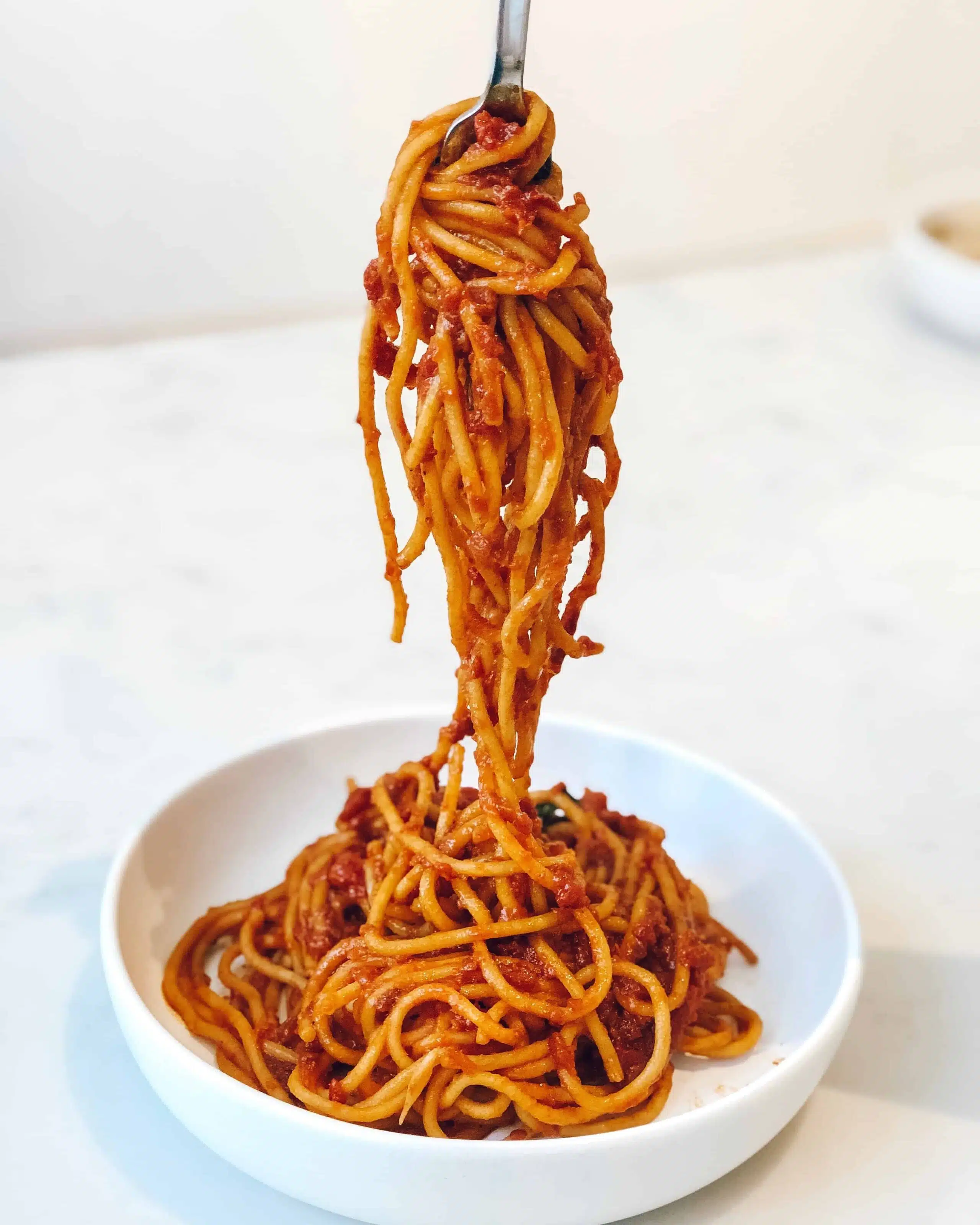What’s your ‘secret sauce’? Uncovering your business’ USP
 What makes you so special? Why should customers choose your business over all the others out there doing the same thing?
What makes you so special? Why should customers choose your business over all the others out there doing the same thing?
If trying to answer those questions gets you down, don’t despair just yet.
Sure, chances are that your business is just one of many in your local marketplace offering your product or service. And new competitors enter the market All. The. Time.
BUT
As an established business, you have an edge over any fresh competitors. New businesses are untested in the market – they’ll need to create a way to differentiate themselves. That may (or may not) be in line with what customers are looking for.
There is already something about your business that makes you unique. That ‘secret sauce’ that makes your loyal customers choose your product or service and recommend it to their friends.
You just haven’t uncovered it yet.
A compelling reason to buy
Your unique selling proposition (USP) is what helps your brand stand out from the crowd. You may sometimes hear it called your ‘point of difference’ (POD). Either way, it’s a statement about the value you bring to your customers’ lives.
It means you can stop trying to be ‘all things to all people’
When you ask the average business owner who is their target market, they’ll often shoot back with ‘anyone with a pulse’. But the truth is, when you try to please everyone, you end up pleasing no one.
Fun fact: sometimes your target market is your USP
Well, the fact that you only serve them. particularly if you are a service-based business. When you can concentrate on truly meeting the needs of one specific group of customers, your whole business becomes so much more focused.
You’ll also carve out a reputation as the expert in your niche. Once every element – from your service packages to your phone message – is designed to delight that particular group of customers (who no one else is chasing), competition is much less of an issue. Why would they go to anyone else?
What else might your USP be?
There is no right answer to this question. Your USP is most likely hiding somewhere unexpected. It may lie in your location, your processes, your suppliers, your customer service, a promotional offer or guarantee, your brand story, your personality, your values…
In fact, it’s easier to say what it shouldn’t be.
It’s probably not that your product or service is ‘the best’
This claim is hard to prove and a very subjective one at that. Plus, it puts you in competition with everyone else. The ultimate goal when uncovering your USP is to find a way to operate in a market of one.
Don’t try to be ‘unique’ for the sake of it
Make sure your USP meets a demand or need. There’s not much point being the only place that sells snow gear near Uluru.
It’s not something you can just ‘make up’
Your USP must be truthful – something that you and your team believe about your business. If you don’t buy it, there’s no way that your customers will.
For example, you can’t honestly market a home renovation company as ‘convenient’. Customers wouldn’t believe it – they know that even the most minor of renovations always lead to upheaval at some point. But (as long as it is true) you could highlight that your experienced team works quickly, respectfully and uses proven systems to reduce the impacts of your work on their daily lives as much as possible. That sounds credible (and very appealing).
What might help you discover your USP?
Try to learn from the best
If you need some examples of how to identify what your ‘thing’ is, take a look at some of the biggest brands. A great example is from car hire company, Avis. A while back, they were a consistent runner up to market leader, Hertz. Turning this seeming negative into a positive, they put it right out there in their tagline ‘We’re number 2. We try harder.’ A bold move – but it tripled their market share in just four years. Who doesn’t love an underdog?
Zig when others zag
It seems obvious, but it bears repeating that you should keep an eye on the competition and make sure your USP goes against the grain.
Take Aldi. They could have tried to compete with Woolworths on ‘freshness’. They may have pointed that while Coles’ prices may be ‘down’, Aldi’s are lower still.
Nah.
Aldi knows that their unique selling point is that they are… well, unique. Perhaps, even, a little odd. But in the best kind of way. The prices are low, the service is low-touch and there’s that whole ‘middle section’ – where else can you buy a jackhammer, a mini solar panel and an electric tie rack when you pop in for milk and bread? So, they went with ‘Good different’ – it sums them up nicely.
Understand that features aren’t benefits
Some USPs are weak because they focus on a feature, rather than the benefit to the customer. For example, a corporate cleaning company shouldn’t focus on the fact that they get your office clean. That’s a given. But maybe they happen to use low-allergen products, reducing asthma flare-ups (and therefore employee sick days). This benefit to the customer may form the basis for their USP.
Mind your (4) Ps
Product. Price. Place (or distribution). Promotion. These are the 4 Ps of marketing. There may be something you do differently from your competitors in one of these elements. Online gifting company, RedBalloon, nails all four ‘Ps’ but chose the convenience of their online distribution channel (place) as the basis for their USP. Being able to shop a wide array of options in one place makes choosing a perfect – and maybe slightly unusual – gift incredibly easy for their customers. Even at the last minute. That’s an easy sell.
Go through the (e)motions
USPs are not always purely logical. There may be an emotional reason why customers might prefer your brand over the competition. First you will need to understand what emotional needs your customers have, then you can work out how you meet them. A high-end garden and lawn maintenance company might, for example, build their USP around their customers’ desire to ‘keep up with the joneses’.
The most important source of intel: your customers!
Like I said, as an established business, you have been tested in the market. There’s a reason why your loyal customers keep coming back for more. If you haven’t done it yet, ask them why they choose you.
Make it a regular part of your sales process to ask for a review and you’ll have a constant stream of insights. Look for patterns in the positive feedback – your customers may just serve your USP up to you on a silver platter.
USP in action: my local pizza places
I’m not sure if they got together and held a USP summit, but the pizza shops in my local area have this ‘point of difference’ thing licked.
There’s one place that makes tasty, mid-priced pizzas. Nothing revolutionary toppings-wise but they’re dependably good, offer online ordering and a reliable delivery service. Plus, they make a must-try Nutella dessert pizza. Yum.
There’s a second place that makes high-end woodfired pizza with exotic toppings. They charge at least 25% more but they really are premium (there are things drizzled with truffle oil on the menu). There’s an eat-in option in a classy but family friendly environment. They play nice music and serve wine. There is takeaway (pickup – no delivery). BUT no Nutella pizza.
There’s another pizza store that’s a little way further from me. It has OK pizza at low prices. It delivers. It’s not as reliably great at the first option (plus, again, no Nutella option). BUT it is always open – even on days when everything is shut.
Try to get an order from any of these places on a Friday night and you’ll need to wait at least 45 mins. They are all wildly successful because they are not really in competition with each other. They all serve very different groups of people with very different needs.
Once you find it, spread it everywhere
Having a USP will help you really turbo-charge your branding, marketing and sales efforts. Everything should be geared towards clearly communicating your USP to your customers. Your logo, taglines, website copy, even the colours you use in your marketing materials should be developed with your USP in mind.
Once you have your USP, you can be more confident that you will be more effective at connecting with your customers. Afer all, the whole concept of a unique selling point is customer-centric – it’s not about why you are in business, it is about which people choose you and why.
No one is ‘you-er’ than you
Uncovering your USP is an important step in really growing your business. It makes positioning and marketing yourself so much easier, because it offers a clear vision of who your products and services are for. It also makes deciding to buy from you a breeze for your customers. They won’t need to sift through all the options when you make it so easy to see why you are the right choice for them.
So, even if you haven’t yet discovered that ‘specialness’ that makes your customers choose you every time, rest assured that (in some small but important way) your business is unique. Just like everyone else’s.



